Vinod Khanna
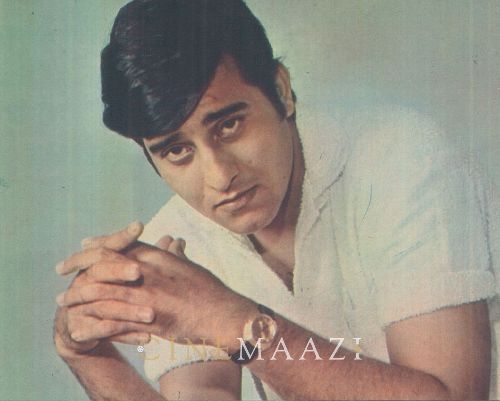
Subscribe to read full article
This section is for paid subscribers only. Our subscription is only $37/- for one full year.
You get unlimited access to all paid section and features on the website with this subscription.
Not ready for a full subscription?
You can access this article for $2 , and have it saved to your account for one year.
- Born: 6 October 1946 (Peshawar, British India)
- Died: 27 April 2017 (Bombay)
- Primary Cinema: Hindi
- Parents: Kamla Khanna, Krishanchand Khanna
- Spouse: Geetanjali Taleyarkhan, Kavita Daftary
- Children: Rahul, Akshaye, Sakshi, Shraddha
The ruggedly good looking, charismatic Vinod Khanna will go down in history as being possibly the only male star to have renounced success albeit temporarily in order to pursue spiritual fulfilment. At the time, he was the sole contender to superstar Amitabh Bachchan’s crown. One of the most successful actors in the history of Hindi cinema, he is best remembered for his performances in Kuchhe Dhaage (1973), Gaddaar (1973), Imtihaan (1974), Muqaddar Ka Sikandar(1978), Inkaar (1977), Amar Akbar Anthony (1977), Rajput (1982), The Burning Train (1980),Qurbani(1980), Kudrat (1981), Parvarish (1977), Khoon Pasina (1977), Dayavan (1988), Chandni (1989)and Jurm (1990). He enjoyed a second innings in films and also carved out a successful political career, becoming the MP from the Gurdaspur constituency between 1998–2009 and 2014–2017, the minister for Culture and Tourism in the Atal Bihari Vajpayee cabinet, and the Minister of State for External Affairs.
Born on 6 October, 1946 to Kamla and Krishanchand Khanna, a businessman who dealt in textiles, dyes and chemicals, the family relocated to Bombay post Partition. A graduate from the Sydenham College of College and Economics, Khanna made his acting debut with Man Ka Meet (1969). The film was made by Sunil Dutt in order to launch his brother Som Dutt as an actor. Ironically, it was Vinod Khanna who walked away with the praise,as the film offers began to pour in. Cast mainly in negative roles such as in Aan Milo Sajna (1970), Khanna also played second lead to the hero in films like Purab Aur Paschim (1970) and Sachaa Jhutha (1970). Interestingly, despite playing villain or cop, which is not the ideal blueprint for an actor who dreamed of being a leading man, Khanna still shone through on the strength of his screen presence. His performance as the ruthless dacoit Jabbar Singh in Raj Khosla’s Mera Gaon Mera Desh (1971) brought him rave reviews. The same year, he played a solo lead role in Hum Tum Aur Woh, even as he made a strong impact in Gulzar’s directorial debut, Mere Apne (1971). He delivered a sensitive performance in this film, which focused on the issue of youth looking for direction in life. Gulzar repeated him in Achanak (1973), which was loosely based on the Nanavati murder case. Even in the early years of his career, Khanna veered from the formulaic mainstream cinema, a trend that was to continue as seen in his films such as Shaque (1976), Rihaee (1988), Lekin… (1990), Leela (2002), and Zooni (unreleased). Khanna’s early roles as a leading man were in relatively smaller productions; however, even though they were not blockbuster commercial hits, his performances unfailingly came in for praise.
His real breakthrough as hero came with Prakash Mehra’s Haath Ki Safai (1974). Playing parallel hero to Randhir Kapoor, his performance bagged him the Filmfare award for Best Supporting Actor. Blockbuster hits followed, one after the other—Hera Pheri (1976), Amar Akbar Anthony (1977), Parvarish (1977), Muqaddar Ka Sikandar (1978) and Qurbani (1980). The trend of multi-starrers had Khanna teaming up as parallel hero alongside Amitabh Bachchan, Jeetendra and Feroz Khan. Whether it was The Burning Train or Qurbani, he made his impact in these as well, going on to win Best Supporting Actor for Haath Ki Safai.
Khanna became the second most saleable star in the Hindi film industry after Amitabh Bachchan. He remained a notch lower than Bachchan, despite being adored by both fans and critics. Both actors shared great onscreen chemistry, as seen in the immensely successful Muqaddar ka Sikander and Amar Akbar Anthony. Even as professional success flowed, Khanna was experiencing changes on the personal front. He developed an interest in the philosophy of Pune-based godman, Bhagwan Rajneesh. From spending weekends at the ashram, to taking on the name Swami Vinod Bharti, his involvement with his spiritual guru grew and he chose to be fully ordained on 31 December, 1975. Khanna’s interest in his film career waned and in 1982 he renounced his family and films to pack his bags and follow his guru to Oregon, America, to live and work in Rajneeshpuram. With his ‘retirement’ from the industry, his marriage with wife Geetanjali Taleyarkhan also ended in divorce in 1985.
When Khanna decided to return to the industry after a five-year hiatus, it was a changed place. Yet he had retained his good looks and screen presence, and went on to deliver two consecutive hits. Mukul S Anand’s Insaaf (1987) had him co-starring with Dimple Kapadia, while Raj N Sippy’s Satyamev Jayate (1987) paired him opposite Meenakshi Seshadri and Anita Raaj. Even though his career did not touch the same high as it had before, Khanna’s second innings was nonetheless marked by success in a slew of action films. If Rihaee (1988) and Suryaa: An Awakening (1989) were largely forgettable, Yash Chopra’s 1989 hit Chandni brought him acclaim. With a new generation of young actors emerging, Khanna came to be considered mainly for roles of a policeman or a feudal Thakur. In 1990, he remarried, tying the knot with Kavita Daftary, daughter of industrialist SharayuDaftary.
In the 1990s, Khanna appeared in several commercial films including Muqaddar Ka Badshaah (1990), CID (1990), Lekin…(1990), Humshakal (1992), Aakhri Adaalat (1988), Maha-Sangram (1990), Khoon Ka Karz (1991), Police Aur Mujrim (1992),Kshatriya (1993), Insaaniyat Ke Devta (1993), Ekka Raja Rani (1994) and Eena Meena Deeka(1994). He launched his son Akshaye Khanna in films with Himalay Putra (1997), even as he himself graduated to playing character roles. The same year, he also entered politics joining the Bharatiya Janata Party (BJP). With the exception of the 2009 general elections which he lost, Khanna contested and won three terms from the Gurdaspur constituency in 1999, 2004 and 2014. Simultaneously he acted in films such as the Pakistani film Godfather (2007), Wanted (2009), Dabangg (2010),Dabangg 2 (2012), and Dilwale (2015). His last memorable role was that of Salman Khan’s estranged stepfather in Dabangg.
Khanna passed away on April 27, 2017. He had been suffering from advanced bladder cancer. A year later, he was posthumously awarded the Dadasaheb Phalke Award for his contribution to Indian cinema.
-
Filmography (107)
SortRole
-
Ek Thi Rani Aisi Bhi 2017
-
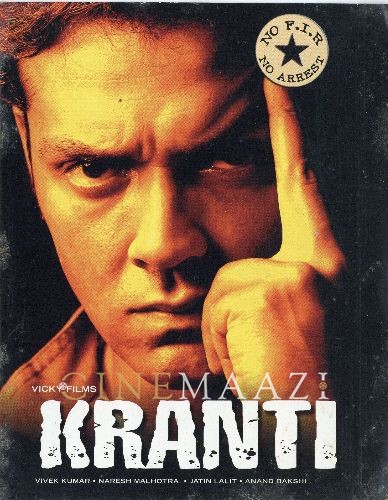
Kranti 2002
-
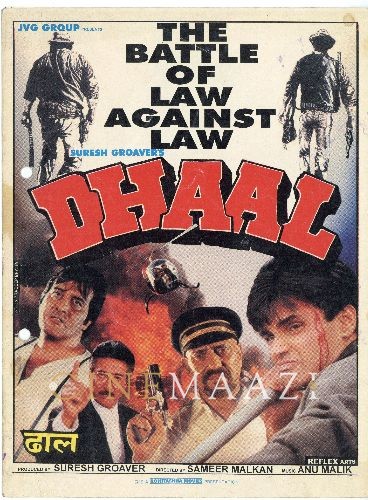
Dhaal 1997
-
Himalay Putra 1997
-
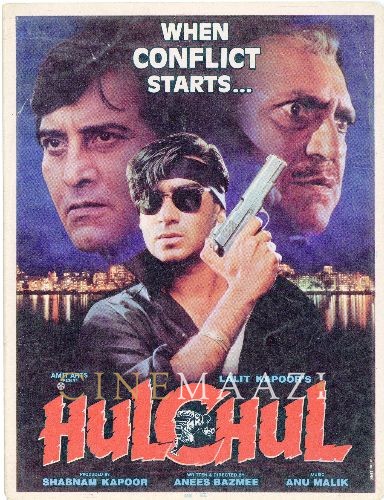
Hulchul 1995
-
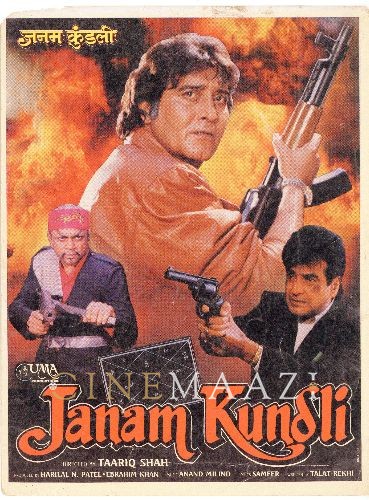
Janam Kundli 1995
-

Pyar Ka Rog 1994
-

Ekka Raja Rani 1994
-

Eena Meena Deeka 1994
-
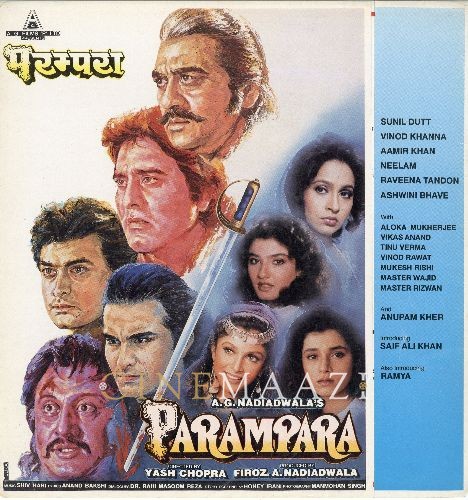
Parampara 1993
-

Insaniyat Ke Devta 1993
-

Kshatriya 1992
-



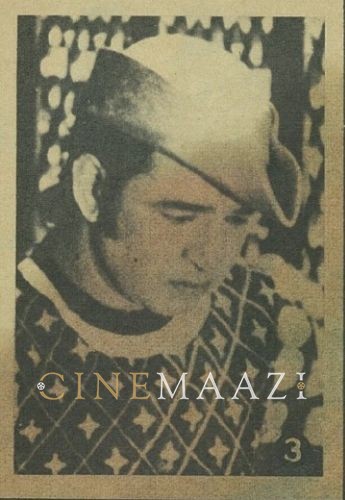
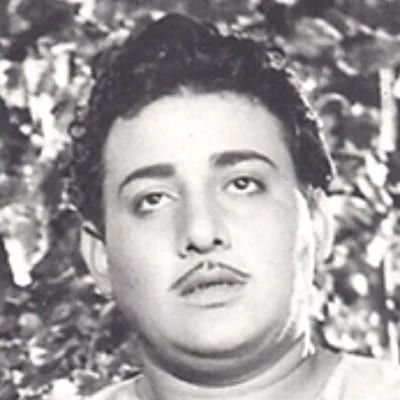
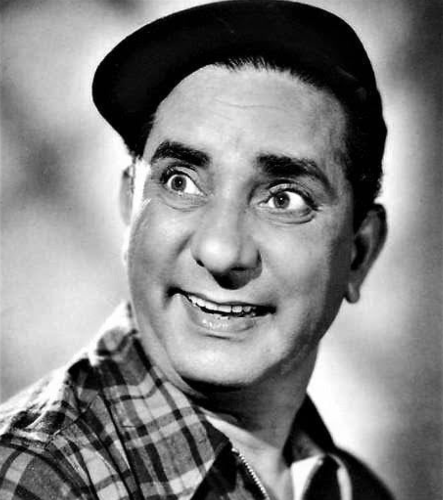



.jpg)



